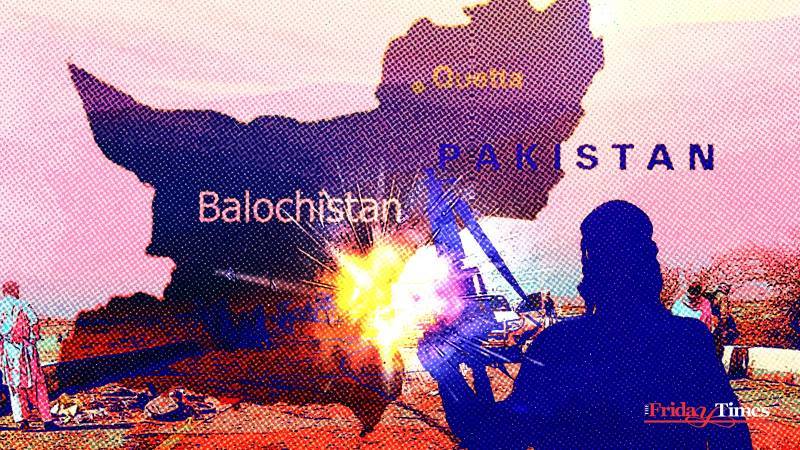
A pressing question often posed by policymakers and the media is whether a long-term and sustainable solution exists to the Balochistan crisis. The answer is a definitive 'yes'. However, achieving this solution requires a shift in approach. The current crisis in Balochistan cannot be resolved with outdated methods. Pakistan must move beyond reactive policies and embrace sustainable, long-term solutions that address the root causes of the Baloch issue.
Recently, the situation in Balochistan has deteriorated significantly, presenting serious challenges and raising pressing questions. Since the insurgency began in 2005, there have been numerous devastating attacks. These incidents have heightened security concerns, with attacks increasingly targeting security forces, key infrastructure, and civilian areas such as Moosa Khel, Qallat, Kolpor, Khad Koocha, and Turbat. This recurring violence underscores the urgent need for sustainable policies that address underlying issues and ensure the region's secure and stable future.
To effectively address the Baloch issue, it is crucial to understand its historical context. The incorporation of Balochistan into Pakistan in 1948 was controversial, with many Baloch leaders claiming it was annexed against the will of the local population. This historical grievance has been exacerbated by the ongoing underdevelopment of the province and the perception that the central government exploits Balochistan's rich natural resources without benefiting its people adequately.
This has fostered an atmosphere of distrust, detachment, and, at times, armed insurgency. Successive governments have attempted to address Baloch dissatisfaction through military force, coercion, and short-term economic incentives. However, these reactive approaches have failed to tackle the root causes of Baloch grievances, often exacerbating the situation and leading to further alienation and resistance.
Reactive policies, by nature, are short-term and focus on immediate crises. In Balochistan, this has involved military operations, temporary financial aid, and superficial political concessions. While these measures may provide temporary stability, they fail to address the systemic issues underlying Baloch dissatisfaction. Military operations, while intended to combat insurgency, have often resulted in civilian casualties and the displacement of residents. This heavy-handed approach has intensified alienation and resentment amongst the Baloch population, reinforcing the narrative of oppression exploited by insurgent groups.
Similarly, financial packages and development projects frequently announced with great publicity and fanfare often fail to reach the grassroots level or meet the specific needs of the Baloch people. Corruption, mismanagement, and lack of local involvement have hindered the success of these initiatives, leading to disillusionment. Without meaningful local participation, such projects are unlikely to achieve long-term success.
The Baloch people should have a meaningful role in governing their province, including control over natural resources and decision-making processes. Structural reforms are needed to empower the Baloch population and address their demands for greater autonomy
Political concessions, such as greater autonomy or representation, have been sporadic and inconsistent. Often perceived as mere attempts to placate Baloch leadership rather than make genuine efforts to empower the people, these measures have failed to build trust or address deep-seated grievances.
To effectively address the Baloch issue, Pakistan must adopt sustainable and holistic policies. These policies should not only address immediate concerns but also lay the foundation for long-term peace, development, and integration. They must be grounded in principles of inclusivity, justice, and respect for the rights and aspirations of the Baloch people.
A crucial aspect of sustainable policy-making is ensuring genuine political representation and autonomy for Balochistan. The Baloch people should have a meaningful role in governing their province, including control over natural resources and decision-making processes. Structural reforms are needed to empower the Baloch population and address their demands for greater autonomy. The recent resignation of political figure Akhtar Mengal from parliament highlights the need for genuine political leadership and the end of political manipulation.
Economic development must also be tailored to the needs and aspirations of the Baloch people rather than be imposed from above. Priority should be given to projects which benefit the local population, create job opportunities, and ensure equitable sharing of benefits from natural resource extraction. Additionally, efforts should focus on improving education, healthcare, and infrastructure. It is concerning that around 3,500 schools in Balochistan are non-functional due to teacher shortages, and about 16,000 academic positions are vacant. Addressing these issues is essential, as access to education is a fundamental right.
Sustainable policies must also address the social and cultural dimensions of the Baloch issue. The Baloch people have a unique cultural identity that should be preserved and celebrated. Integration efforts should respect and uphold this identity rather than undermine it. Promoting cultural understanding, preserving Baloch heritage, and fostering a sense of belonging within the broader Pakistani identity are critical components of this process.
The challenge of terrorism and unrest in Pakistan cannot be addressed solely through reactive measures. Sustainable policies that are inclusive and responsive to the needs and aspirations of the Baloch people are the only way forward. Such policies should focus on political empowerment, economic development, and cultural preservation to achieve lasting peace in Balochistan. With commitment and unwavering political will, Pakistan can address this issue in a manner that fosters unity, stability, and prosperity for all its citizens.

